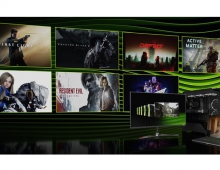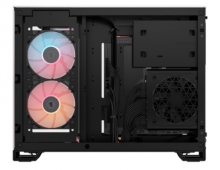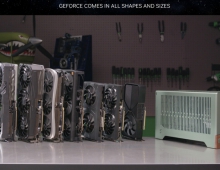
ATI Not Affected by Nvidia - Uli Wedding
David Orton insisted Nvidia's announcement to acquire Taiwanese Uli Electronics leaves no broken hearts and isn't the issue for ATI that some media and industry reports have suggested it could be.
The object of the two companies' interests is ULi Electronics Inc., a Taiwan-based microchip developer. ULi has for years enjoyed strong relationships with both companies by supplying each with important chip technology, but it appears that Nvidia has decided three's a crowd. The company announced recently that it is acquiring ULi, promising to pay out roughly $52-million (U.S.) for the proverbial wedding ring. Under the deal, Nvidia will have the small Taiwanese developer all to itself by the end of March.
The announcement has raised eyebrows across the tech industry and sparked speculation that Nvidia could decide to cut ULi's business ties with its main competitor. ATI uses ULi's "south bridge" microchips -- chips that allow devices such as a mouse, keyboard, drives, sound card and monitor to communicate with a computer.
In an interview, ATI president and chief executive officer David Orton insisted Nvidia's announcement leaves no broken hearts and isn't the issue for ATI that some media and industry reports have suggested it could be. He dismissed the idea that the acquisition of ULi was a case of Nvidia trying to sucker-punch ATI, as was suggested by online technology news magazines and by a number of postings in on-line forums. "I think people are trying to read too much into the acquisition, and most of those claims are unfounded," Mr. Orton said.
Though ATI has received chips from ULi since 1999, Mr. Orton said only 10 per cent of ATI's global south bridge business is based with ULi. As a result, he doesn't expect the acquisition will have a significant effect on ATI's bottom line or overall technology strategy.
To replace ULi's supply, ATI has reportedly scheduled roll out of a new southbridge chip by the second quarter of this year, the SB600, adding to its current offerings including the SB450.
Nvidia had said in a recent interview with video game and hardware site firingsquad.com that it expects no change in ULi's service to current customers.
Matthew Wilkins, a senior analyst at market intelligence company iSuppli who covers the video-card industry, said he doesn't think Nvidia will use the acquisition to cut off ATI's access to microchips.
"The common sense test is that Nvidia is going to continue that business, because it's a revenue stream," Mr. Wilkins said. "Rather than cutting off that stream, I think what you're more likely to see is a filtering, where if ATI wants to buy south bridges, Nvidia could instruct ULi not to offer the latest and greatest. But that's speculation. It'll be interesting to see how it all pans out."
The announcement has raised eyebrows across the tech industry and sparked speculation that Nvidia could decide to cut ULi's business ties with its main competitor. ATI uses ULi's "south bridge" microchips -- chips that allow devices such as a mouse, keyboard, drives, sound card and monitor to communicate with a computer.
In an interview, ATI president and chief executive officer David Orton insisted Nvidia's announcement leaves no broken hearts and isn't the issue for ATI that some media and industry reports have suggested it could be. He dismissed the idea that the acquisition of ULi was a case of Nvidia trying to sucker-punch ATI, as was suggested by online technology news magazines and by a number of postings in on-line forums. "I think people are trying to read too much into the acquisition, and most of those claims are unfounded," Mr. Orton said.
Though ATI has received chips from ULi since 1999, Mr. Orton said only 10 per cent of ATI's global south bridge business is based with ULi. As a result, he doesn't expect the acquisition will have a significant effect on ATI's bottom line or overall technology strategy.
To replace ULi's supply, ATI has reportedly scheduled roll out of a new southbridge chip by the second quarter of this year, the SB600, adding to its current offerings including the SB450.
Nvidia had said in a recent interview with video game and hardware site firingsquad.com that it expects no change in ULi's service to current customers.
Matthew Wilkins, a senior analyst at market intelligence company iSuppli who covers the video-card industry, said he doesn't think Nvidia will use the acquisition to cut off ATI's access to microchips.
"The common sense test is that Nvidia is going to continue that business, because it's a revenue stream," Mr. Wilkins said. "Rather than cutting off that stream, I think what you're more likely to see is a filtering, where if ATI wants to buy south bridges, Nvidia could instruct ULi not to offer the latest and greatest. But that's speculation. It'll be interesting to see how it all pans out."





















